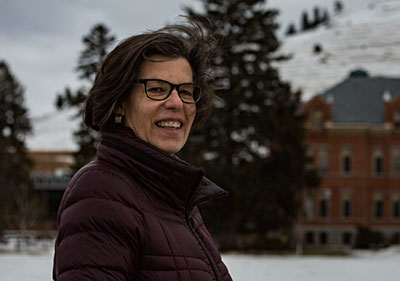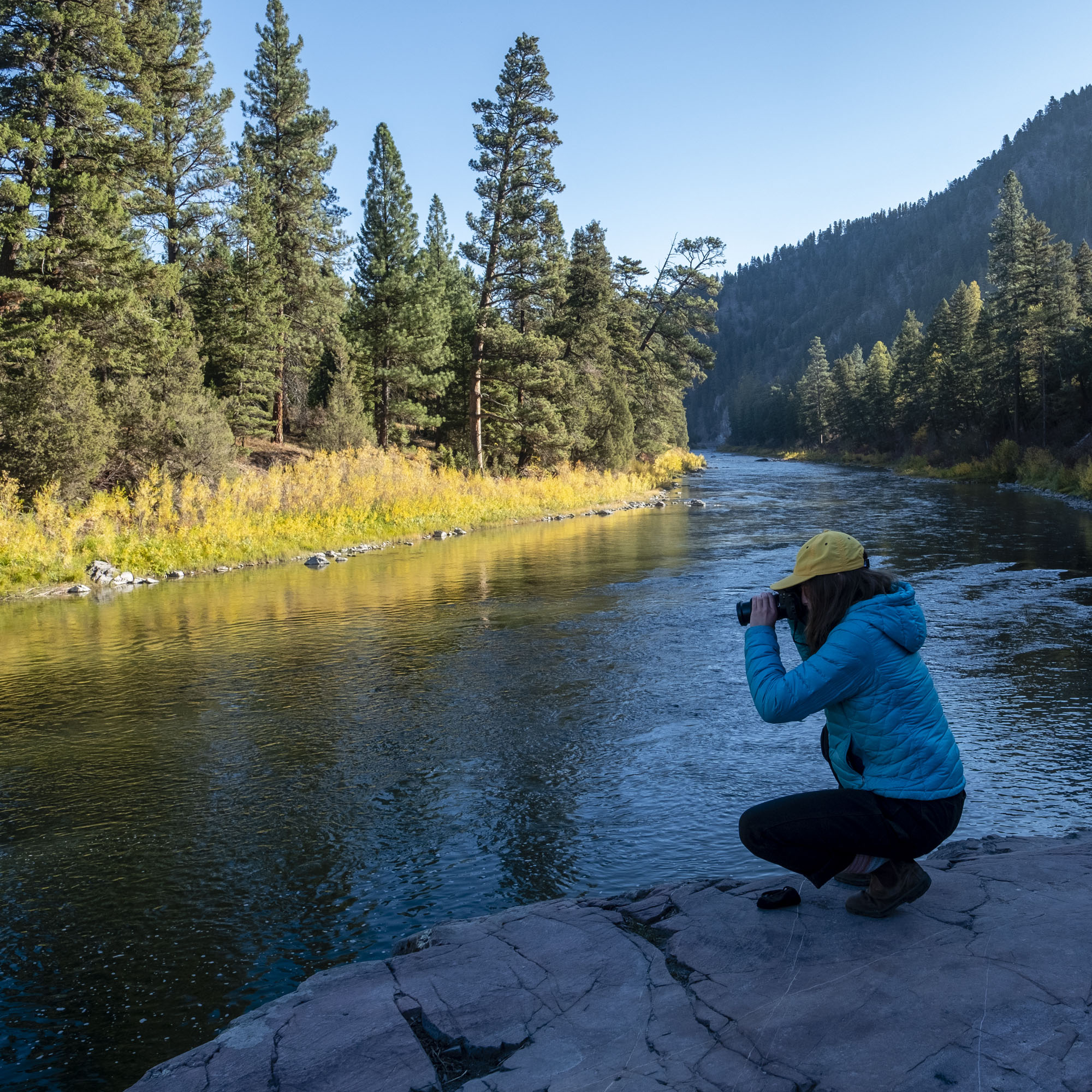Deborah Potter
 Deborah Potter is a veteran television journalist and journalism trainer. She spent 16 years as a network correspondent for CBS News and CNN and was a contributing correspondent for the PBS program “Religion & Ethics Newsweekly” for more than a decade. Potter founded NewsLab, a non-profit resource for journalists, in 1998 and ran it for 20 years. She leads workshops in newsrooms in the United States and around the world on writing, social media, digital journalism and ethics. She is co-author of the journalism text “Advancing the Story,” published by CQ Press. Potter has a bachelor’s degree from the University of North Carolina at Chapel Hill and a master’s from American University. She lives near Washington, D.C. At UM, she was the journalism school’s 20th Pollner Professor in the spring of 2018, teaching a seminar on journalism and public trust.
Deborah Potter is a veteran television journalist and journalism trainer. She spent 16 years as a network correspondent for CBS News and CNN and was a contributing correspondent for the PBS program “Religion & Ethics Newsweekly” for more than a decade. Potter founded NewsLab, a non-profit resource for journalists, in 1998 and ran it for 20 years. She leads workshops in newsrooms in the United States and around the world on writing, social media, digital journalism and ethics. She is co-author of the journalism text “Advancing the Story,” published by CQ Press. Potter has a bachelor’s degree from the University of North Carolina at Chapel Hill and a master’s from American University. She lives near Washington, D.C. At UM, she was the journalism school’s 20th Pollner Professor in the spring of 2018, teaching a seminar on journalism and public trust.
Reflections:
“To teach is to learn twice.” I’ve always thought the French writer Joseph Joubert got that exactly right and my time at the University of Montana proved it to me once again. I learned from the students in my seminar and at the Kaimin newspaper, and I got paid to have more fun than I had any right to.
The application for a Pollner visiting professorship is an open invitation to dream up a seminar you really want to teach. I’ve trained working journalists for years so it would have been easy to turn those workshops into a semester-long course. Or I could have suggested a class based on my journalism textbook and maybe even sold a few copies. That would have made my publisher happy. But, no. I did neither. Why?
What most excited me about the Pollner was the opportunity to get students thinking deeply about an issue they’re bound to face on the job but that journalism school rarely prepares them for: no matter how good their work is, lots of people won’t trust it. So I developed a seminar on journalism and public trust, not to bemoan attacks on the news media but to look at the many reasons why trust has declined and what can be done to regain it.
Throughout the course, the students asked challenging questions and shared their own observations about trust in the news. It was a rich conversation in part because there’s nothing “typical” about the students enrolled in the UM J-school. Students who were military veterans or working journalists brought life experiences to class. They understood why trust in the news media has cratered among Republicans in particular because they took a lot of grief from their politically-conservative relatives. One student recalled being asked, “Is that school you go to teaching you to lie?” Missoula is a blue dot in a red state; my students had first-hand knowledge about America’s filter bubbles.
A good chunk of the Pollner professor’s time is spent at the student newspaper, the Montana Kaimin. What you actually do there as an adviser depends both on you and on the wishes of the student editor-in-chief. I ran a couple of all-staff workshops--one on story development and another on social media—and did a weekly critique. I also served as an extra set of eyes in copy editing, channeling my inner word nerd. I hung out with the videographers and photographers, talking storytelling and cheering them on. But I learned the most as a sounding board for the Kaimin editors and reporters while they wrestled to nail down the facts of a story or struggled with ethical dilemmas. Yes, they’re students, but they take their responsibilities as journalists seriously. They went after stories involving the university’s administration without fear or favor. On more than one occasion they had the local newspaper, the Missoulian, following their lead.
The J-school faculty is one of the most collegial groups I’ve had the privilege to work with. They collaborate on projects, set high expectations for their students and genuinely enjoy each other’s company. They made me feel welcome from day one.
What no one tells you about the spring semester in Missoula is that it’s winter for most of your stay. That may not be everyone’s idea of fun but my husband and I thoroughly enjoyed it; so did our snow-loving dog. There’s great skiing within a couple of hours’ drive and great beer wherever you go. Missoula is a small town with a big heart. People wave as you walk by even if they don’t know you. Cars stop so you can cross the street even if you’re nowhere near a crosswalk. As we head back to our home in the big city there’s a lot we’re going to miss. I’d love to come back but, for obvious reasons, this Pollner thing is one to a customer. Enjoy, future Pollners. May you teach, learn and have as wonderful a time as I did.
